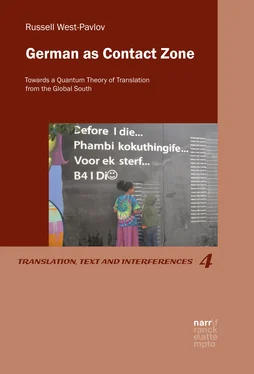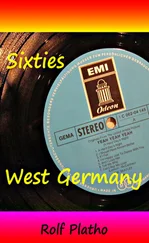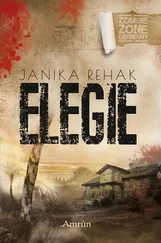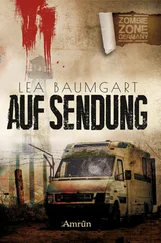For, lest we understand this as a ‘demotion’ from the status of a global language, it is worth considering once again the double nature of Sissako’s centre-margin operations. Centre and periphery are categories that Sissako is constantly inverting, subverting, entangling and complicating for every entity, language, culture, or even ‘nature’, in the film. In this way, Germany and the German language appear here on the dynamic generative margins of a wonderful tapestry of cultures and languages, where translation is constantly taking place between the protagonists and the spectators.
Sissako’s decentring of German and Germany within the fabric of Global South cultures might be taken as a ‘decolonizing’ gesture, except for the fact that clearly both the Soviet Union and, by extension, the German Democratic Republic functioned in this historical narrative as bearers of anti-colonial hope. Both the USSR and the GDR were powerful embodiments of and sometime facilitators in the project of forging the ‘futures past’ of socialist-supported anti-imperial liberation struggles in the then Third World (Piot 2010; Scott 2004: 210). The ‘Oktobermorgen’ of the final meeting also alludes to such socialist temporal utopias—enshrined in the title of a 1993 film by Sissako, Oktyabr . Perhaps not only Russian, but to some extent German as well, was what the film calls a ‘Sprache unserer vergangen Illusionen’ (Sissako 1997: 57:29-47) [a ‘language of our bygone illusions’] (for the Namibian context where this seems to have been very much the case, see Schleicher 2006).
Moreover, far from diminishing the German language, even as it renders it mute, this film elevates the German of the subtitles to a translative participant in a network of bizarre meetings and constantly surprising dialogues between reciprocally communicative foreigners. In effect, Sissako’s film quite literally reframes the German language, displacing it from its current status as a secondary language of global (economic) hegemony and domestic gatekeeper in struggles for access to socio-cultural privilege. Rather, by constantly turning the borders of the language ‘inside out’, as Sissako persistently does, the film enables us to rediscover the German language and its concomitant geographies and cultures as peripheral translation zones that butt up against many other languages and cultures. These translation zones are of course linguistic in character, but they are also far more than that. As suggested by the final mute moments of double spectatorship from the taxi (the last of many in the film that have metapoetically ostended travelling, questing spectatorship, the landscape, the world of nature, things, material processes) language is a powerful interlocutor that participates in multifarious non-linguistic translative processes.
The natural world may well be perceived as an ‘outsider’ from our human point of view, as the taxi-scenes imply via their orchestration of inside and out. But the final moment of the quest inverts this relationship. We see Dramane/Sissako climbing out of the taxi and striding towards the building, ringing the doorbell and crossing the threshold into the shabby block of flats (Sissako 1997: 57:15). Concretely, at this point the protagonist crosses over into an interior that is outside of the film’s visual range and thus located at several degrees of exteriority to the spectator’s implied position. Dramane/Sissako also transits, at this moment, into a future that is thoroughly beyond the temporal reach of the filmic diegesis. The film thus marks, at the moment of rehearsing its own temporal-diegetic conclusion, the translative crossing into the ‘real’ or ‘outside’ world that is, after all, as much its object and goal as its own autotelic and internal poetic coherence. In the last of so many ‘inside-out’ inversions, the film situates itself within the larger world, a world that the doorway marks as a network of thresholds, transitions, transports, transfers—in sum, as a network of translations.
Yet perhaps the door is only one visual metaphor for the translative threshold: more apposite, given the Global South provenience of this work of art, might be the balcony—that crumbling para-domestic structure over whose balustrade Baribanga briefly glances before waving, and turning again to the interior to welcome his just-arrived guest (Sissako 1997: 57:35-40). In its twin and avatar the veranda (etymology: Indian English veranda , from Hindi varaṇḍā , from Portuguese varanda ‘railing, balustrade’) this hanging structure is a translative space. The veranda or balcony both belong to the domestic domain but are not part of it. The veranda is a threshold structure that originates in the Global South, but, via multiple linguistic translations and architectural migrations, shuttles back and forth between north and south and between south and south. In postcolonial Africa, the veranda comes to stand for a certain type of clan-based politics of patronage and clientism whose redistributory logic is located on the threshold between the domestic space of a powerful ‘big man’ and the adjacent territory (Terray 1986). In some cases, the veranda becomes a metonym for Global South geography per se , as in Australia’s populous East Coast ‘veranda’ between the arid inland and the Pacific Ocean rim (Drew 1994). It is significant that Baribanga, the goal of the film’s quest, appears on a balcony whose dilapidated state transforms it into a displaced veranda. It is no less significant that his appearance is ephemeral, thus heralding an encounter at the door. The threshold is not merely a place of meetings—it is a time of futurity and promise. Logically, the meeting that the final scene records takes place before the film has been made, so that it functions as the exact opposite of the inaugural murder that powers the back-to-front action of the detective story (Todorov 1980: 9-19). Here, the threshold space of the veranda is the metonymic site for the mobility that generates life-giving encounters. Its terminal position in the film transpires, retrospectively, to have powered the journeys and meetings leading up to it. To that extent, the final meeting point of the film opens out, via the figure of the veranda as much as that of the door, onto what Rilke (1975: 49; 1978: 71) calls ‘das Offene’ [‘the Open’]—the limitless expanse and the open-ended time of unceasing natural transformations, a cosmic ‘contact zone’ of physical, material ‘translations’.
Under the sign of ‘das Offene’, this book begins with a speculative wager that may be very much like the sort of quest that Dramane/Sissako undertakes as he goes in search of a friend he almost doesn’t find—thereby producing a film which is much more, at the end of the day, than the quest for a single person. The individual search cedes to the discovery of a community and a natural landscape. What is the wager-like interrogatory quest that this book embarks upon?
It runs as follows: What if we were to approach translation not only as a linguistic activity that has produced, in the last decade or two, a large body of imaginative and stimulating scholarship using translation as a (sometimes overstretched) metaphor—but rather, as a generalized process of creative dynamism informing the entire fabric of life—of which linguistic translation, therefore, would be one limited exemplar? In other words, what if we were to take translation as a metaphor seriously—even over-seriously? What if were to take the ‘transport’ (in modern Greek, you catch the metaphor to get to work) of ‘translation’ across the vehicle/tenor border, into foreign semantic fields not merely as a creative abuse of language—but as a symptomatic revelation of translative operations that have always already been going on in all the fields of natural activity, obfuscated all too often by our obsessive focus upon linguistic translation?
Читать дальше












